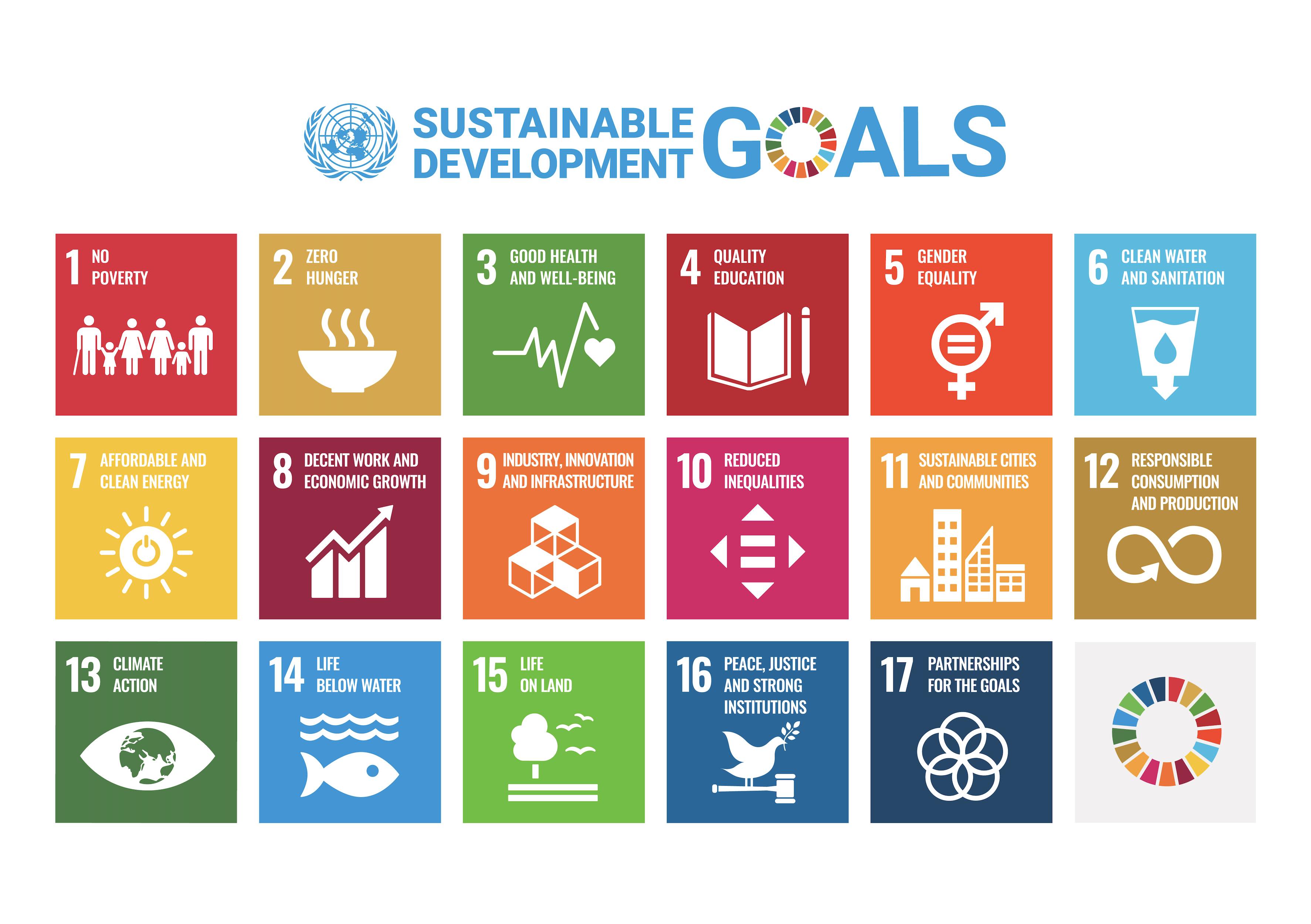Sustainable Development Goals: companies, how to get started?
The Sustainable Development Goals (SDGs) adopted by all United Nations Member States aim to protect the planet and its inhabitants, whilst ensuring prosperous economic growth. Companies have a key role to play if we are to achieve these goals by 2030.
Sustainable Development Goals: what are they?
In September 2015, the 193 Member States of the United Nations (UN) adopted 17 Sustainable Development Goals (SDGs). The aim of these goals is to address major global challenges with a call to action to protect the planet and humanity, while at the same time encouraging economic growth. These goals cover issues related to poverty, health, education, gender equality, energy, the climate, biodiversity, peace and economic prosperity, etc.
The aim is to achieve the 17 SDGs by 2030. They are listed in the 2030 Agenda for Sustainable Development, also referred to as the 2030 Agenda, which presents the roadmap for the construction of a better future.
The 17 SDGs are detailed on the United Nations website:

Source: www.un.org
In Luxembourg, the main instrument for implementing these various goals is the National Sustainable Development Plan (Plan national pour un développement durable – PNDD) which lays out the government’s priorities for action. The involvement of all parties in the Grand Duchy is required and many measures have already been introduced to achieve these SDGs by 2030.
CSR corresponds to the voluntary contribution made by companies to meet the challenges of sustainable development.
How can companies contribute to the SDGs?
Companies have a key role to play. They can contribute to the SDGs by integrating social and environmental considerations into their business activities, whilst promoting economic growth. This is referred to as Corporate Social Responsibility (CSR).
CSR thus corresponds to the voluntary contribution made by companies to meet the challenges of sustainable development. In concrete terms, it refers to various types of initiative implemented within companies to promote environmental protection, the reduction of inequalities, responsible investment, etc. These initiatives must be integrated with the global corporate strategy and daily operations, and relationships with employees, clients, suppliers, subcontractors and partners.
Useful info: ESG criteria (environmental, social and governance criteria) allow analysis of the performance of a company’s CSR policy by measuring its level of sustainability.
The Luxembourg Chamber of Commerce has established the “Luxembourg Sustainable Business Principles” to help companies integrate the challenges of sustainable development into their strategies.
The Luxembourg Chamber of Commerce has established the “Luxembourg Sustainable Business Principles” to help companies integrate the challenges of sustainable development into their strategies. These are ten guiding principles that aim to provide a common direction for implementing sustainable development within companies, whilst preparing for forthcoming regulations.
| More than 40% of companies have a CSR policy
A survey carried out in 2022 among 584 Luxembourg companies showed that 40% of them have implemented a CSR policy and that those with the highest numbers of employees have the most far-reaching approach. It also appears to be an issue that most managers consider in future planning (source: Panorama 2022 du Développement Durable). |
Some examples of CSR initiatives
Corporate commitments may take various forms, depending on the size and type of business. In addition to respect for social and environmental regulations – which constitutes a minimum requirement – these may specifically cover working conditions, the impact of the business on the environment or on local development. There are numerous examples of initiatives that can be implemented by companies in response to the SDGs.
Examples of initiatives to promote employee well-being:
-
- Promoting well-being at work by offering specific employee services such as a gym, creche, dry cleaning, etc.,
- Installing optimised ergonomic work areas,
- Offering flexible working arrangements, access to training, etc.,
- Guaranteeing staff safety in the workplace,
- Encouraging gender equality and diversity in teams,
- Etc.
Examples of initiatives for the environment:
-
- Encouraging employees to use more environmentally friendly transportation (replace a fleet of thermal vehicles with electric vehicles, make bicycles available, etc.),
- Improving the company’s waste management system (introduce a recycling system, reduce paper consumption, eliminate packaging, reduce food waste, etc.),
- Optimising energy consumption (switch off lights and IT equipment in the evenings and during the weekend, lower the heating, choose energy-efficient light bulbs, etc.),
- Promoting short circuits and working with local producers,
- Using recycled or more environmentally friendly materials,
- More environmentally friendly production methods (reduced water and energy consumption, restricted levels of waste and pollution, etc.),
- Protecting natural resources (forests, waterways, soils, etc.),
- Choosing renewable energies,
- Implementing measures to promote the circular economy: repair, reuse, recycle,
- Etc.
Examples of societal and ethical initiatives:
-
- Prioritising responsible economic partners which respect human rights and environmental standards,
- Supporting charitable works and local non-profit organisations,
- Participating in social or environmental projects,
- Establishing an ethical charter,
- Etc.
Companies can also draw inspiration from the good practices and initiatives presented on the platforms http://www.aktioun-nohaltegkeet.lu/ and http://www.economie-circulaire.lu/.
| Labels offering certification for corporate initiatives promoting sustainable development
There are several labels in Luxembourg that offer certification for CSR initiatives, highlighting their commitment to sustainability. For example:
|
SDGs: corporate support schemes
There are various initiatives in Luxembourg to support companies that want to integrate sustainable development projects into their strategy.
For example, the “Klimapakt fir Betriber” programme, launched by the government in January 2023 with the support of the Klima Agence and Luxinnovation, aims to guide and support companies with decarbonisation and energy transition. It suggests a catalogue of measures including “advice, a toolbox, co-financing for investments, and introductions to key players and other companies”.
The “Guide RSE”, published by the INDR, offers companies the possibility to self assess their performance on 140 topics linked to sustainable development.
The interactive cartography of Luxembourg created by Luxinnovation details the public and private bodies offering solutions or services to facilitate the transition to a more sustainable economy.
Meanwhile, IMS (Inspiring More Sustainability) is behind numerous projects aimed at raising awareness, providing information, and offering sustainable solutions and alternatives for private, public and non-profit organisations.
Financial subsidies have also been set up to support companies with their sustainable initiatives.
Financial subsidies have also been set up to support companies with their sustainable initiatives. Of particular note are Luxinnovation’s Fit4 Sustainability programme of subsidies for environmental protection, and the SME Packages – Sustainability of the General Directorate for Small and Medium-Sized Enterprises, the Chamber of Commerce and the Chamber of Trades.
There are several schemes offering investment subsidies, such as those promoting energy efficiency measures and renewable energy, recycling and waste reuse, energy infrastructure, etc.
| Creation of the House of Sustainability
Inaugurated on 21 April 2023, the House of Sustainability aims to help Luxembourg companies integrate sustainable development issues into their strategy. An initiative of the Chamber of Commerce and the Chamber of skilled Trades & Crafts, the platform offers a whole range of services aimed at guiding, informing, raising awareness, training and supporting the country’s companies in their sustainable transition process. |
In conclusion, it’s worth remembering that initiatives promoting the Sustainable Development Goals also offer numerous related advantages for companies. In addition to the positive impact for the planet and its inhabitants, CRS approaches optimise a company’s operations, open up access to new markets, and improve its reputation with employees and clients. These are all persuasive arguments for managers to play their role in combatting environmental and societal challenges. Now’s the time to become an agent for change.


 Mortgage
Mortgage Personal loan
Personal loan Savings
Savings